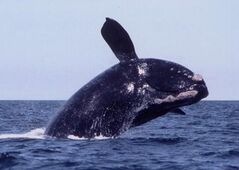 By The Rev. Dr. Margaret Bullitt-Jonas In the Daily Hampshire Gazette Published: 5/29/2019 10:18:50 AM What is an emergency? Merriam-Webster defines emergency as “an unforeseen combination of circumstances or the resulting state that calls for immediate action.” Does climate change count as an emergency? Not if an emergency must be “unforeseen,” because when it comes to climate change, scientists have been sounding the alarm for decades, saying that burning massive quantities of fossil fuels could lead to catastrophe. Of course, the fossil fuel industry (#ExxonKnew) has spent millions of dollars trying to make the climate emergency as “unforeseen” as possible, for as long as possible, to as many people as possible. But the clock has run out. The time of reckoning is at hand. Foreseen or unforeseen, the climate crisis is upon us and it calls for immediate action. In early May, the same week that the U.K. and Ireland became the first two countries to declare a climate emergency, the Anglican Communion became, as far as I know, the first global religious body to recognize a climate emergency. At our annual gathering in Washington, D.C., the National Religious Coalition on Creation Care (NRCCC) released a statement titled, “Religious Declaration of Unprecedented Human Emergency.” The statement clarifies two essential facts: Humanity has an extremely short window of time in which to avert irreversible climate chaos, and religions around the world consider protecting God’s creation a moral and spiritual imperative. The stakes are high. As we wrote in the opening lines of the Religious Declaration, climate change is unlike any other challenge that confronts humanity, because it is largely irreversible for a thousand years after emissions stop, and its effects will be felt for thousands of years after that. “Human-induced climate change is underway now, and its impacts are greater and more extensive than scientific models predicted,” the statement says. “We will significantly alter the future of civilization as we know it and may eventually cause its collapse if we continue down this path.” The declaration calls for bold, concerted action: “Decades of delay on climate action have made small corrective measures and incremental approaches useless. Those who are invested in maintaining the status quo, or who put forth proposals that are clearly incompatible with what climate science demands, are condemning innocent young people — including their own children and generations to come — to a future of unimaginable suffering: the mass death of human populations and the extinction of species.” The declaration interprets the climate crisis within a moral framework: “Further delay in addressing climate change is a radical evil that as people of faith we vigorously oppose.” Regarding that assertion, one of the principal writers of the document, Dr. Richard W. Miller, professor of philosophical theology and sustainability studies at Creighton University, added later: “The manufacturing of doubt and the sowing of confusion about climate change by fossil-fuel-industry-funded think tanks, the deceptive climate-change reporting by ideologically-driven media outlets, the investing in fossil fuel infrastructure by banks and high-profile investors, the expansion of pipelines, oil, and gas wells are all radically evil actions that continue to this day. He went on, “The institutions that engage in these actions are enemies of humanity and the web of life. We will oppose these institutions from our churches and synagogues, from our pulpits and lecterns, and from our social halls and gathering spaces. We will fill the halls of power like the young people in the Sunrise Movement in their push for a Green New Deal; we will join school-age children in the streets striking for climate action; and we will rebel with the young people in the Extinction Rebellion in the race to head off the destabilizing of the climate system within which civilization developed.” Are there risks in declaring climate change an “emergency?” I will name two. One risk is that we could waste the moment, and propose solutions that are weak and ineffective. We could squander “climate emergency” on half-hearted measures, delayed action, and supposedly “pragmatic” policies that don’t address the crisis at the scale and pace required to protect human civilization and avert ecological collapse. A second risk in declaring a climate emergency is that political and corporate powers could seize the opportunity to consolidate control and shut out communities that are already vulnerable and marginalized. An autocratic leader could use a national emergency of any kind to threaten democracy and invite tyranny. Religious Declaration of Unprecedented Human Emergency falls into neither trap. It presents a menu of effective solutions. And it underscores the need to address the climate crisis and social injustice at the same time. As Pope Francis stated in his encyclical, “Laudato Si”, we must respond to both the cry of the Earth and the cry of the poor. That is why Religious Declaration supports “the bold direction of the Green New Deal, or other similar science-based proposals, as an opportunity for this country to commit to stabilizing the climate while creating ‘unprecedented levels of prosperity and economic security for all people of the United States.’ This specifically includes low-income communities, communities of color, and those that have historically been marginalized or underserved. The Green New Deal is the first resolution that addresses the climate crisis with the urgency, focus, and comprehensiveness that the situation requires. Our nation mobilized every part of society during World War II and the Great Depression. Like the Greatest Generation, we must rise to the occasion and commit to doing what science says it takes to avoid irreversible catastrophic climate chaos and make a rapid and just transition to a clean energy economy.” The declaration has been signed by Bishop Doug Fisher of our own Episcopal Diocese of Western Massachusetts, and by religious leaders across the country, including heads of denominations, bishops, clergy, and leaders of interfaith environmental organizations. The declaration amplifies statements about climate change that major denominations have already issued. Religious groups across the United States, including the National Council of Churches, U.S. Conference of Catholic Bishops, Central Conference of American Rabbis, National Association of Evangelicals, and the Standing Conference of Canonical Orthodox Bishops, have all called upon policymakers and elected officials to take strong action to address global climate change. As one of the principal writers of the declaration, I hope that it will build momentum and moral courage in our collective efforts to avert climate catastrophe. God sent us into the world to bless and heal, not to ravage and destroy. People of faith affirm that the natural world is a gift of the creator and entrusted to us to cherish and protect. We recognize that humanity is hurtling willy-nilly down a suicidal path that risks bringing down not only our own civilization but also the biosphere as it has evolved for millennia. As people of faith, we stand with the spirit of life, who calls us to build a more just society in which all God’s creatures — humanity included — can thrive. The Rev. Dr. Margaret Bullitt-Jonas of Northampton is Missioner for Creation Care in the Episcopal Diocese of Western Massachusetts and Massachusetts Conference, United Church of Christ. This column is based on a blog post on her website, RevivingCreation.org. “Religious Declaration of Unprecedented Human Emergency” can be read and downloaded at the NRCCC website. https://www.gazettenet.com/Guest-column-Margaret-Bullitt-Jonas-25707909?fbclid=IwAR38_omq8DdRtJ5NHU0z1Op29NaMeLxX3FpUnJTomi7MWT9M-3EGegeaAro  The extinction of whales, birds, and other creatures that once praised God God called all of them good. Humans are rapidly destroying them. May 20, 2019 - Christian Century, Jun 5, 2019 issue A whale that washed up on a beach in the Philippines recently was found to have 88 pounds of plastic in its stomach. That event encapsulates a planetary crisis: the earth’s magnificent creatures—including the very Leviathan that God enjoys watching “sport” in the sea (Ps. 104:28)—are being destroyed by human recklessness. This destruction is happening faster than scientists had previously imagined. A panel of international experts reported in May that up to 1 million of the world’s species are in danger of becoming extinct in the next half century—some within the next two decades. That amounts to one in every eight animal or plant species on the earth. Although species extinction is always happening because of natural changes in habitat, what’s new, according to experts from 50 countries (who belong to the Intergovernmental Science-Policy Platform on Biodiversity and Ecosystem Services), is the rate of extinction—it’s tens to hundreds of times faster than normal. As wetlands are drained, forests are cleared, water is polluted, and oceans are overfished, animal and plant habitats shrink. Climate change puts additional stress on species, making it even harder for plants and animals to adapt. Biodiversity is in rapid decline. The loss of entire species of insects, amphibians, fish, birds, and wildlife and the habitats they depend on will inevitably make human life more precarious. For example, a less biodiverse world with fewer species of crops will mean crops are less resilient. It will be harder to feed the human population. “Protecting the invaluable contributions of nature to people will be the defining challenge for decades to come,” said British scientist Robert Watson, chair of the international panel. Watson and colleagues appeal to people’s enlightened self-interest to motivate a response to the crisis. They want people to recognize the invaluable contribution that the diversity of creation makes to human life. But this instrumental view of nature is itself at the heart of the crisis. It stands in contrast with the vision of creation found in the Bible, where the diversity of plants and animals is not simply useful for humans; it is good in itself, a feature of creation that commands respect and wonder. The divine response to the unfolding of species, as recorded in Genesis 1, is affirmation: “And God saw that it was good.” According to the psalm writers, the proper response to the diversity of creation is praise: “O Lord, how manifold are your works! In wisdom you have made them all” (Ps. 104:24). Psalm 148 imagines the creatures themselves praising God, each in their own way, through their mode of existence: “Sea monsters . . . wild animals and all cattle, creeping things and flying birds! . . . Let them praise the Lord.” Humanity’s assault on the diversity of species is more than self-destructive. It is a denial of creation’s intrinsic worth and of humanity’s fundamental vocation of wonder and praise. A version of this article appears in the print edition under the title “Biodiverse praise.” |
Archives
January 2021
|

 RSS Feed
RSS Feed
